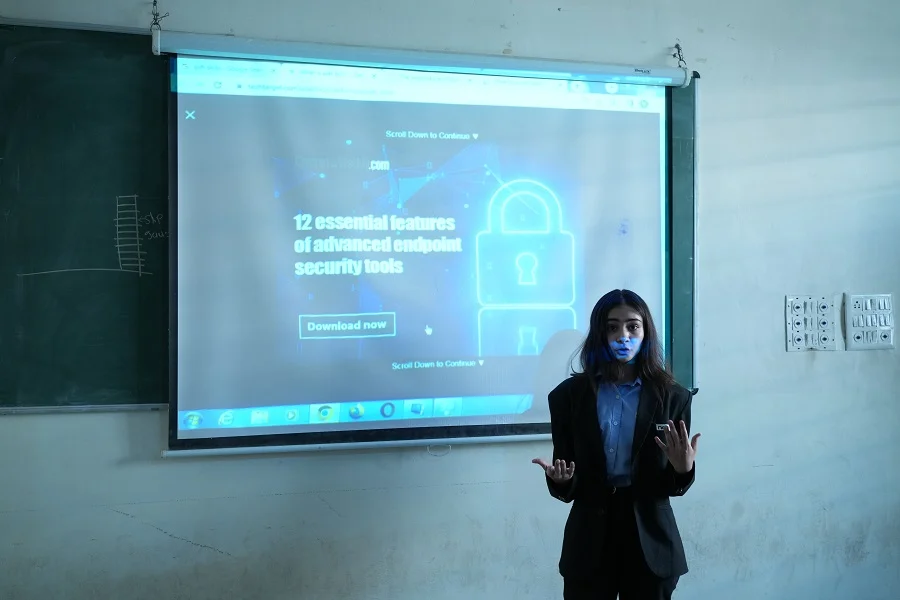
Confused Between What to Do? Part-Time Jobs vs Freelancing: What Works for Students?
In today’s fast-changing world, earning money as a student has gone far beyond the old “summer job” model. Thanks to technology, remote work platforms, and the booming gig economy, students now have access to opportunities that barely existed a decade ago.
India, which barely had 15 million freelancers in 2020 and is projected to hit 23.5 million by 2029–30. That’s not just growth – it’s a cultural shift in how work is viewed. Students are designing logos from dorm rooms, coding apps from coffee shops, and tutoring globally without leaving home.
Meanwhile, traditional part-time jobs are still thriving. A quick scan of job listings in Gujarat shows thousands of openings – from tutoring and retail to administrative roles – offering a steady ₹7,000–₹9,000 a month for those who want a predictable income.
The bottom line? Students today aren’t just studying – they’re actively shaping their careers before graduation. Whether it’s learning client communication through freelancing or mastering time management in a part-time shift, these early experiences are building the next generation of professionals.

At Noble, we help students balance their work and study. Contact us for personalised guidance or check out our Admissions page to enrol at Noble University.
What Is Freelancing?
Freelancing is a flexible work model where you offer skills, like writing, design, coding, marketing, or tutoring, to clients on a project-by-project basis. Instead of fixed shifts with one employer, you work with multiple clients, often remotely and on your own schedule, making it ideal for students balancing academics, personal commitments, and work.
Benefits:
- Total flexibility: You set your own hours and location, working around classes, exams, and activities.
- High earning potential: Skilled freelancers in India can earn ₹1–5 lakh/month, especially in in-demand fields like tech, marketing, and design.
- Real-world portfolio: Every project becomes proof of your abilities, helping you stand out in future job or internship applications.
- Global reach: You can work with clients from anywhere in the world, expanding your network and exposure beyond local opportunities.
Challenges:
- Income inconsistency: Work volume and earnings can fluctuate, so budgeting is key.
- Need for self-discipline: You handle finding clients, meeting deadlines, and invoicing without a boss to guide you.
- Client management skills: You may face demanding clients, unclear briefs, or last-minute changes, requiring patience and strong communication.

What Is a Part-Time Job?
Part-time work refers to structured roles where you work fewer hours than a full-time position but follow a fixed schedule set by your employer. Common examples include retail sales, tutoring, administrative assistance, or café shifts. These jobs often require you to be physically present at a workplace and report to a supervisor, offering a clear routine and steady responsibilities.
Benefits:
- Stable income: You receive regular pay, which makes budgeting and financial planning much easier.
- Routine and discipline: Fixed shifts help you develop essential workplace habits, like punctuality, professional communication, and teamwork, that are valuable in any career.
- Entry-level accessibility: Many part-time jobs require little to no prior experience, making them easy to start for students new to the workforce.
Drawbacks:
- Rigid schedules: Pre-set shifts may overlap with classes, assignments, or exam preparation, making flexibility harder.
- Less specialized growth: The work experience may build general professional skills, but might not directly contribute to your long-term career goals.
- Limited earning potential: Hourly or monthly pay is usually capped, making it difficult to significantly increase your income without working more hours.
Freelancing vs Part-Time: Direct Comparison
Factor | Freelancing | Part-Time Job |
Flexibility | Very high, you decide when, where, and how much you work, allowing you to adjust around classes, exams, and personal commitments. | Low, shifts are fixed by the employer, leaving little room to adapt your schedule. |
Income Potential | High, skilled freelancers can earn anywhere from ₹1–5 lakh/month, especially in in-demand niches like tech, marketing, or design. | Steady but generally modest, it provides predictable monthly pay, though usually lower than top-tier freelance earnings. |
Skill Development | Specialised, helps you build a strong portfolio in a chosen field, directly boosting career prospects. | General, develops broad workplace skills like teamwork, time management, and customer service. |
Ease of Starting | Requires existing skills or a starter portfolio to attract clients; building credibility takes effort. | Easy, many roles require minimal training or prior experience, making them quick to start. |
Workload Control | You manage your own deadlines, clients, and workload volume. | Employers assign tasks and structure the workload for you. |
Which One Fits You Better?
Choosing between a part-time job and freelancing isn’t just about money – it’s about what aligns with your lifestyle, study load, and long-term goals. The “right” choice for one student may be completely wrong for another.
Let’s look at how different situations can help you decide.
For Students with Tight Study Schedules
If your classes, assignments, and projects leave you with only a few spare hours a week, freelancing might be better. You can take up short, flexible projects and work in pockets of free time rather than committing to fixed shifts.
For Students Who Want to Build a Career Portfolio
Freelancing can help you showcase real-world projects in your desired field, be it writing, graphic design, coding, or social media marketing. Part-time jobs, on the other hand, may not always align with your dream career but can still add valuable work experience.
For Those Needing Consistent Income
If your main priority is a stable paycheck to cover monthly expenses, a part-time job is more reliable. Freelancing can be unpredictable – some months you might earn more, and other months, less.
Balancing Work and Studies
Whether you choose freelancing or a part-time job, the real challenge is keeping your grades up while earning money. Without proper planning, you might end up overworked and underperforming in both. The key lies in managing your time smartly and maintaining your energy.
Time Management Tips
- Use a weekly planner to block out study time, work hours, and breaks.
- Avoid last-minute work – try to submit tasks well before deadlines.
- Keep weekends flexible for either catch-up studies or extra earning opportunities.

Avoiding Burnout
- Prioritise sleep and healthy eating, even during busy weeks.
- Take short breaks between tasks to refresh your mind.
- Learn to say “no” when work overload starts affecting your studies or health.
Noble University: Your Support System for Earning While Learning
At Noble University, we understand that today’s students don’t just want a degree; they want experience, skills, and a head start in their careers. That’s why our Career Development Cell works year-round to connect academics with real-world opportunities.
Here’s how we support our students in their professional ventures:
- Skill-Building Workshops & Seminars – From industry-led sessions to hands-on training, students gain the confidence and know-how to excel in both freelance projects and part-time roles.
- Internship & Project Support – Our team helps you land internships or live projects that complement your academic path while giving you a taste of industry expectations.
- Career Guidance & Resume Support – Whether you’re building a freelance portfolio or polishing your CV for a part-time job, our mentors are here to guide you every step of the way.
Ready to Level Up Your College Game?
Whether you’re eyeing the freedom of freelancing or the dependable rhythm of a part-time job, the key is to start now. At Noble University, we’re here to help you grow, skill up, earn smarter, and emerge ready for tomorrow’s opportunities.
FAQS
It depends entirely on your personal goals and circumstances. Freelancing offers unmatched flexibility and the potential for higher earnings if you already have marketable skills; part-time jobs provide stability and structure, which can be great if you prefer a set routine and predictable income while studying.
Yes, especially if you’re skilled in high-demand areas like design, content writing, or coding. Many Indian students report making ₹1–5 lakh/month through freelancing, and with the right clients and consistent work, earnings can grow significantly over time.
Freelancing gives you complete control over your income, work hours, and the type of projects you take, helping you build a career-relevant portfolio. However, it also requires strong self-discipline, client management skills, and the ability to handle inconsistent pay cycles.
The biggest drawback is fixed hours, which can sometimes clash with lectures, assignments, or exam preparation. Additionally, most part-time roles focus on general tasks, so they may not always develop specialised skills that align closely with your long-term career goals.
Successful students often use time-blocking, allocating specific hours for studying and working. They rely on organisational tools like Trello or Google Calendar, set clear boundaries with clients, and avoid overcommitting to protect both their academic performance and work quality.
Yes, beyond the immediate income, they help you develop workplace etiquette, team communication, and responsibility. These soft skills are highly valued by employers in almost every industry and can give you an advantage during future job applications or interviews.
Part-time jobs are usually easier to start because many roles require little to no prior experience or training. Freelancing, on the other hand, often requires a starter portfolio or example work to attract clients and build credibility in the market.
Start small with volunteer projects, internships, or creating your own sample work to showcase your skills. Compile these into a simple online portfolio and look for entry-level freelance gigs on reputable platforms like Fiverr, Upwork, or Freelancer.
Yes, as long as you work through trusted platforms, keep personal information private, and secure payment agreements upfront or through escrow. Staying professional and cautious will protect you from scams while you gain experience.


